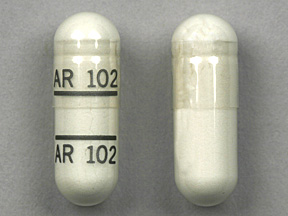
Quinine Sulfate Coupons & Savings Card – Discount Prices from $25.17
Generic for: Qualaquin
Quinine, marketed as Qualaquin, is an antimalarial medication used to treat uncomplicated malaria caused by Plasmodium falciparum in individuals aged 16 and older. It is not used for preventing malaria. The drug works by disrupting vital cellular processes in the malaria parasites residing in red blood cells, ultimately killing them. Quinine is usually administered in capsule form every 8 hours.
While effective, quinine can cause side effects such as nausea, stomach pain, and vomiting, which may be alleviated by taking the medication with food. It is often not the first choice for treatment due to its numerous side effects, potential drug interactions, and the requirement to be taken alongside other medications like doxycycline or other antimalarials for a complete cure. Additionally, in some cases, another medication such as primaquine may be needed to eliminate parasites in other body tissues and prevent relapse.
Before traveling to malaria-prone regions, it's important to consult the latest guidelines and recommendations from health authorities like the United States Centers for Disease Control and discuss them with your healthcare provider. Always seek professional medical advice before starting any new medication.
Our coupons are free to use. Before paying, show the pharmacist your Quinine Sulfate savings card to get your free discount. Use our filters below to edit the prescription box to match your needs. The Quinine Sulfate prices will update based on your prescription needs. Above our Quinine Sulfate coupons, you can change your location to see pharmacy prices and costs in other areas. We're here to help you buy Quinine Sulfate at the lowest price with our prescription discount card.
My prescription
Edit
324MG, Quinine Sulfate (30 Capsules)
Select pharmacy

CVS
$31.58
COUPON PRICE
Walmart
$25.17
COUPON PRICE
Walgreens
$32.46
COUPON PRICE
Albertsons
$36.16
COUPON PRICEQuinine Sulfate savings card
Show this card to your pharmacist
Walmart
$25.17
BIN
ID
PCN
GRP
019876
LH76A37314
CHIPPO
LHX
Powered by
Quinine, marketed as Qualaquin, is an antimalarial medication used to treat uncomplicated malaria caused by Plasmodium falciparum in individuals aged 16 and older. It is not used for preventing malaria. The drug works by disrupting vital cellular processes in the malaria parasites residing in red blood cells, ultimately killing them. Quinine is usually administered in capsule form every 8 hours.
While effective, quinine can cause side effects such as nausea, stomach pain, and vomiting, which may be alleviated by taking the medication with food. It is often not the first choice for treatment due to its numerous side effects, potential drug interactions, and the requirement to be taken alongside other medications like doxycycline or other antimalarials for a complete cure. Additionally, in some cases, another medication such as primaquine may be needed to eliminate parasites in other body tissues and prevent relapse.
Before traveling to malaria-prone regions, it's important to consult the latest guidelines and recommendations from health authorities like the United States Centers for Disease Control and discuss them with your healthcare provider. Always seek professional medical advice before starting any new medication.
Our coupons are free to use. Before paying, show the pharmacist your Quinine Sulfate savings card to get your free discount. Use our filters below to edit the prescription box to match your needs. The Quinine Sulfate prices will update based on your prescription needs. Above our Quinine Sulfate coupons, you can change your location to see pharmacy prices and costs in other areas. We're here to help you buy Quinine Sulfate at the lowest price with our prescription discount card.
More prescriptions for malaria
coupons from$38.80Save 70%
coupons from$9.16Save 99%
coupons from$1600.81Save 92%
coupons from$35.31Save 93%
coupons from$1105.93Save 71%
coupons from$5.89Save 82%
coupons from$15.26Save 93%
coupons from$841.35Save 46%
More prescriptions for malaria
Chloroquine Phosphate Save 70%coupons from $38.80
Quinidine Sulfate Save 99%coupons from $9.16
Daraprim Save 92%coupons from $1600.81
Primaquine Save 93%coupons from $35.31
Doryx Mpc Save 71%coupons from $1105.93
Mondoxyne Nl Save 82%coupons from $5.89
Doryx Save 93%coupons from $15.26
Oracea Save 46%coupons from $841.35
Quinine Sulfate dosage forms
Use our Quinine Sulfate 324MG coupon with prices from $25.17 for 30 Capsules. You can also use our Quinine Sulfate 324MG coupon with prices from $3.26 for 1 Capsule. We have a Quinine Sulfate 324MG coupon with prices from $17.61 for 20 Capsules.
Dosage Quantity Price from Per unit 324MG 30 Capsules $25.17 $0.84 324MG 1 Capsule $3.26 $3.26 324MG 20 Capsules $17.61 $0.88
| Dosage | Quantity | Price from | Per unit |
|---|---|---|---|
| 324MG | 30 Capsules | $25.17 | $0.84 |
| 324MG | 1 Capsule | $3.26 | $3.26 |
| 324MG | 20 Capsules | $17.61 | $0.88 |
